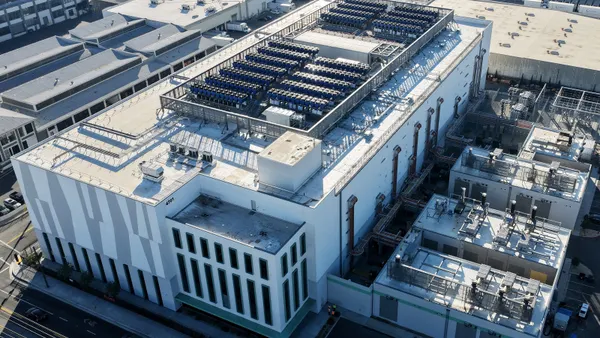Dive Brief:
-
Researchers are concerned that federal budget cuts could cause the U.S. to fall behind in developing energy storage technology, Axios reports.
-
The Trump administration's proposed 2018 budget would slash funding for advanced battery research by nearly 75%, reducing it to $36 million from $140 million last year.
- Many of those funding projects enjoy bipartisan support, so Congress could likely exempt them from the Trump budget cuts, researchers gathered in Washington, D.C., for a conference, told Axois.
Dive Insight:
The entire Department of Energy is facing steep budget cuts under the proposed Trump 2018 budget; not only will some programs will be cut, but others will begin to wind down entirely.
The 2018 Trump budget calls for the elimination of the Advanced Technology Vehicles Manufacturing Loan Program and the Innovative Technology Loan Program. The Advanced Research Projects Agency-Energy (ARPA-E) would be phased out, with funding dropping to $20 million from $290 million in 2017. That would eliminate annual $20 million funding for an Argonne National Laboratory research hub, and for an ARPA-E unit that researches advanced battery projects, among other things.
Supporters say that programs like ARPA-E provide seed money that is not forthcoming from the private sector. Last year ARPA-E was funding 75 battery system projects that the agency said had the potential to transform renewable energy storage in the next five to 10 years. Overall, since 2009, ARPA-E has provided $1.3 billion in funding to more than 475 projects, of which 45 have gone on to raise $1.25 billion in private sector funding.
A 2010 Harvard Business Review article argued that technological solutions to clean energy problems are not likely to be solved without government involvement because advanced energy projects often have high costs and are trying to disrupt incumbent technologies with low costs.
The researchers at the Washington conference told Axios that they are concerned that DOE budget cuts could erode U.S. progress on advanced energy technologies and result in an outflow of U.S. research talent to countries with better-funded programs, such as China, Japan and South Korea.
The fear is well-founded — once Trump announced his plans to exit the Paris climate accord, French President Emmanual Macron invited American climate scientists to move abroad and continue their work in France. It's too soon to tell if any scientists have taken him up on that offer, but it signals a global push to forge ahead with climate action with or without the United States.












